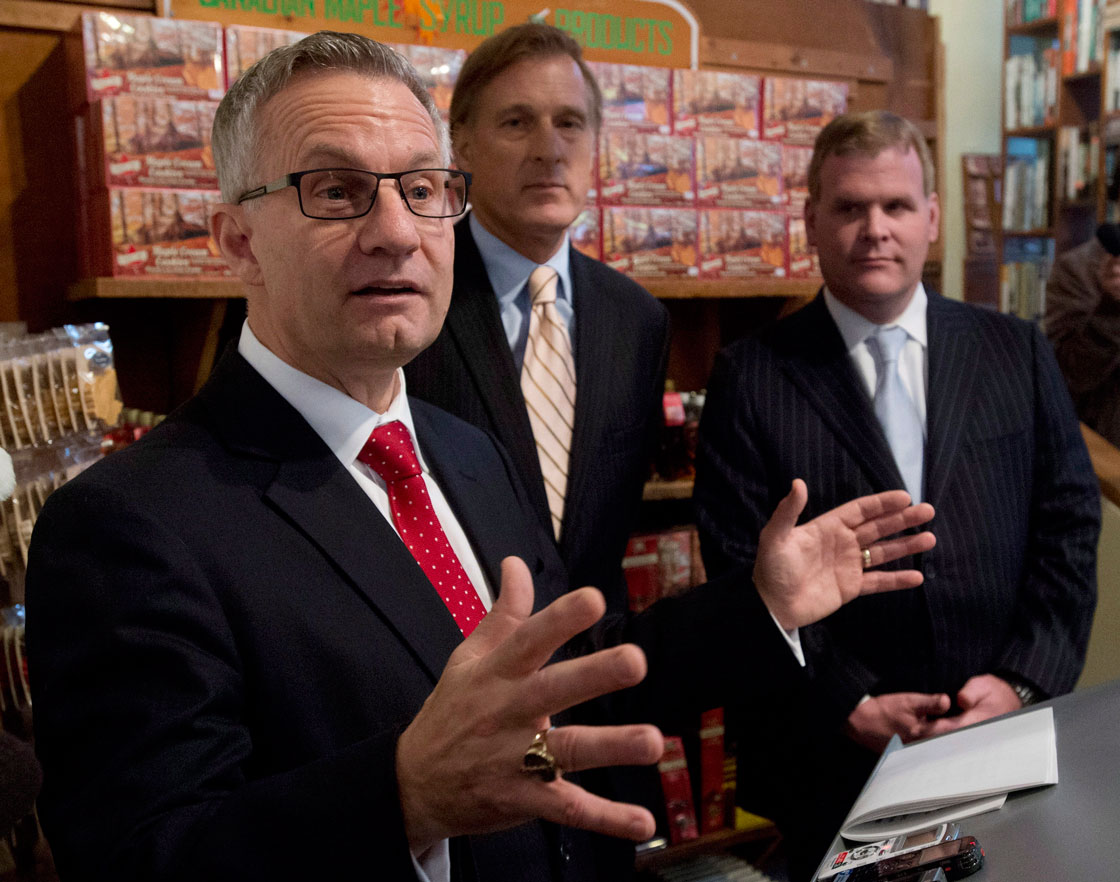Unlike previous trade deals that contained potentially sweeping changes for domestic companies and consumers, it appears Canadians won’t get the opportunity for a more direct say on the country’s newly announced pact with Europe.

While federal ministers say the text of Canada’s free trade agreement with the European Union will be available within the next few months, Canadians won’t be headed to the polls before the ratification of the deal, which an agreement in principle was announced on Friday.
Instead, the Harper government, which is billing the Comprehensive Economic and Trade Agreement, or CETA, as a game changer for Canada, is launching a cross-country sales pitch with ministers, MPs and supportive stakeholders.
Trade Minister Ed Fast and Foreign Affairs Minister John Baird suggest the agreement will likely be approved by Parliament before voters go to the polls in 2015.
Read more: Will new trade pact with EU create jobs, or see tens of thousands vanish?
Fast and Baird say Canadians gave the Harper Conservatives a strong mandate to negotiate the deal in the last election in 2011. The ministers insist the agreement will get a full debate in the House of Commons.
Both the free trade deal with the United States and NAFTA, which added Mexico, were key issues in federal election campaigns before being subsequently ratified by Parliament.
Fast said although a legal text may be a few months away, the parameters of the deal won’t be altered. Among the known details contained in CETA, the deal will eliminate import tariffs on a multitude of EU imports from wine to BMWs in exchange for restrictions being lifted on Canadian goods headed the other way.
- What is a halal mortgage? How interest-free home financing works in Canada
- Capital gains changes are ‘really fair,’ Freeland says, as doctors cry foul
- Ontario doctors offer solutions to help address shortage of family physicians
- Budget 2024 failed to spark ‘political reboot’ for Liberals, polling suggests
Some critics say CETA has received less attention, public scrutiny and debate compared to previous trade pacts.
“It is an affront to democracy for a binding international treaty – negotiated in secret, with its exact terms still concealed from the public – to be agreed to without any opportunity for debate, reflection or independent analysis,” Scott Sinclair, who heads up trade and investment research at the left-leaning think tank Canadian Centre for Policy Alternatives, said in a post published Monday.
The Council of Canadians, which opposes the pact, says the government’s plan is no substitute for a legitimate debate on the merits of the deal. The group wants the government to launch public hearings that would give Canadians a chance to shape the contents of the agreement.
The Harper Conservatives have trumpeted repeatedly – including during last week’s Throne Speech – CETA will generate 80,000 new jobs, and stir up more than $12 billion for the domestic private sector annually.
Others, like labour economists, suggest the deal could be disastrous, ramping up imports from Europe and resulting in 150,000 jobs vanishing.
“There needs to be informed public debate, based on full disclosure of the treaty text. This should happen before Canadian governments, at all levels, make a final decision,” Sinclair said.
— with files from the Canadian Press


Comments